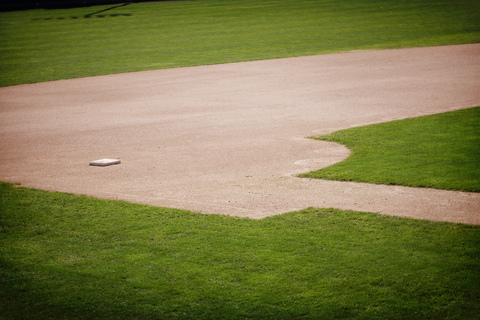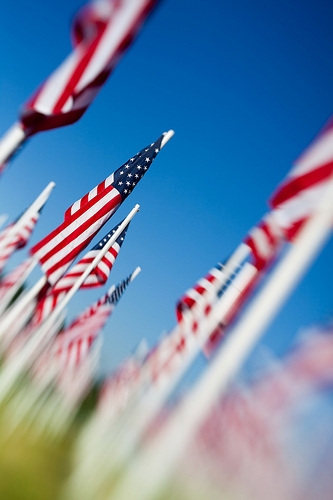June 4th, 2014

With the warmer and longer days here, we know many of our patients at Keldsen Family Dental Care will be much more active in the summer. Though most of our patients are probably already ready to hit the field for some summer fun, we thought we would discuss a few precautions to take when it comes to keeping your teeth safe as you enjoy playing your favorite sports.
Use a Mouthguard
Are your kids participating in contact sports this summer? If the answer is yes, we strongly encourage you to have them fitted for a mouthguard at Keldsen Family Dental Care before the season starts. Athletes can avoid serious mouth and jaw injuries by using a mouthguard.
Be Mindful of Sports Drinks
While sports drinks can be refreshing after a game, they unfortunately contain high levels of sugar and citric acid, which are known to erode the teeth and reduce the minerals in the outer tooth enamel. The simplest way to prevent sports drinks from damaging your teeth? Avoid them completely and drink water instead. Water is a great option to keep you hydrated before, during, or after a game.
Floss, Floss, Floss
While we always tell our patients about the importance of flossing, it is especially important on the day of the game. Athletes are likely to consume more sugar; from energy bars and chews to gum, you are not doing your teeth any favors. All that sugar may give you that extra bounce in your step when out on the field, but we want you to remember to floss when you get home, or else contend with an increased risk of cavities down the road.
If you have any questions about keeping your teeth and mouth healthy while participating in summer sports, please give us a call at our Bend, OR office! Have fun!
May 28th, 2014

Dr. Keldsen and our team know it can be easy to underestimate the significance of baby teeth. At Keldsen Family Dental Care, we sometimes meet parents who assume that since their child's baby teeth, also known as primary teeth, eventually fall out and are replaced, they are less important. But did you know baby teeth serve purposes other than biting, chewing, and digesting food properly?
Baby teeth are essential not only for your child’s language development, but they also serve other important functions, like contributing to the normal development of your child’s jaw bones and facial muscles. Baby teeth also reserve space for your child’s future permanent teeth.
So, when do baby teeth fall out?
A baby tooth is intended to remain in your child’s mouth until the permanent tooth underneath it is ready to take its place. Sometimes, either due to a tooth being knocked out accidentally or being removed because of tooth decay, kids lose baby teeth before the permanent teeth are ready to erupt. If a tooth is lost, the teeth on either side of the open space may possibly push into the open space. The result? There may not be enough room for the permanent tooth when it is finally ready to erupt.
If you have any questions about your toddler’s teeth, or if your child is experiencing issues that concern you, please give us a call to set up an appointment at our convenient Bend, OR office.
May 21st, 2014

Memorial Day is not only a federal holiday in the United States, but it is a day of observance and remembrance of those who died in service. Originally known as Decoration Day, this solemn day has been marked on calendars since the end of the American Civil War as a day to commemorate both the Confederate and Union soldiers who fought and died in the war.
Marking the graves of fallen soldiers with flowers, wreaths, or other tokens has been practiced throughout history, but it wasn't until the mark of the end of the Civil War that a special day was decided upon as the one to spend in remembrance. By 1890, every state in the country was observing Decoration Day. It wasn't until 1967 when the name formally changed from Decoration Day to Memorial Day, in order to encompass all fallen American soldiers in all wars and conflicts. In June of 1968, Congress moved the official date of Memorial Day to the last Monday in May in order to create a three day weekend.
Today, while there is certainly an air of remembrance on Memorial Day, it has become more a day of spending time with family, friends, and other loved ones. This day is also heralded as the start of summer, with many schools finishing for the year around this time. Our team at Keldsen Family Dental Care remembers it as a day to take solace and remembered those lost.
Traditional observances of Memorial Day are still held, and they often involve raising the American Flag then lowering it to a half-staff position until noon, and then raising it once again to its full height afterwards. The flag is lowered to remember those who've lost their lives while in service to their country, and then it is raised to signify our willingness to not let their sacrifice be in vain.
From community parades in the Bend, OR area, backyard cook-outs, and fireworks to formal ceremonies, Memorial Day is commemorated in many different ways. No matter how you choose to spend this day, take a moment to remember those who've lost their lives in an effort to preserve our freedom.
May 14th, 2014

You are probably aware that guzzling soda and drinking those sugary Starbucks Frappuccinos aren’t particularly good for your dental health. But how much thought do you give to the effects of your diet on your teeth? Practicing healthy eating habits isn’t just helpful for your waistline, it also ensures that your teeth stay strong and cavity-free.
How diet affects dental health
Our team at Keldsen Family Dental Care will tell you that your mouth is a complicated place on a microbiological level. Harmful bacteria form dental plaques which convert the sugars in food to acids that wear away at tooth enamel. Meanwhile, saliva washes away some of the detrimental acids, while minerals work to rebuild where teeth are damaged. The foods you eat are important for managing this balancing act between harmful bacteria and helpful rebuilding agents.
Rethinking your diet to prevent cavities
Carefully considering your dietary choices is a smart way to become mindful of the foods you eat and how they affect oral health.
Foods to eat
- Calcium- and phosphorus-rich foods. We’ve all heard that milk builds strong bones, and your teeth are included in that. Milk, cheese, nuts, and chicken are strong sources of calcium and phosphorus. These minerals are used to repair damage to the teeth’s enamel.
- Crunchy fruits and vegetables. Biting into an apple stimulates saliva flow, which washes harmful acids from the surface of your teeth. Turn to other crunchy fruits and vegetables, including carrots, celery, pears, and lettuce, to increase saliva production.
- Sugar substitutes. If you have a sweet tooth but want to decrease tooth decay, sugar substitutes such as Stevia or Equal provide a sugary kick without harming your teeth.
Foods to avoid
- Sugary snacks. Cookies, cakes, candies, and other sugary treats provide a feast for the acid-producing bacteria in your mouth. Furthermore, these foods often get stuck in the ridges of your teeth, and provide a breeding ground for new bacteria.
- Acidic fruits and vegetables. Foods high in acidity, such as tomatoes, citrus fruits, berries, peaches, and lemons, wear away the enamel of your teeth. Because these foods can be part of a healthy diet, remember to brush after eating them or swish with a mouth rinse to protect your teeth.
Eating well is an essential part of keeping your teeth healthy. Consult Dr. Keldsen about your diet for tips on food habits that keep your teeth strong and cavity-free. For more information about the link between your diet and your oral health, or to schedule an appointment with Dr. Keldsen, please give us a call at our convenient Bend, OR office!




